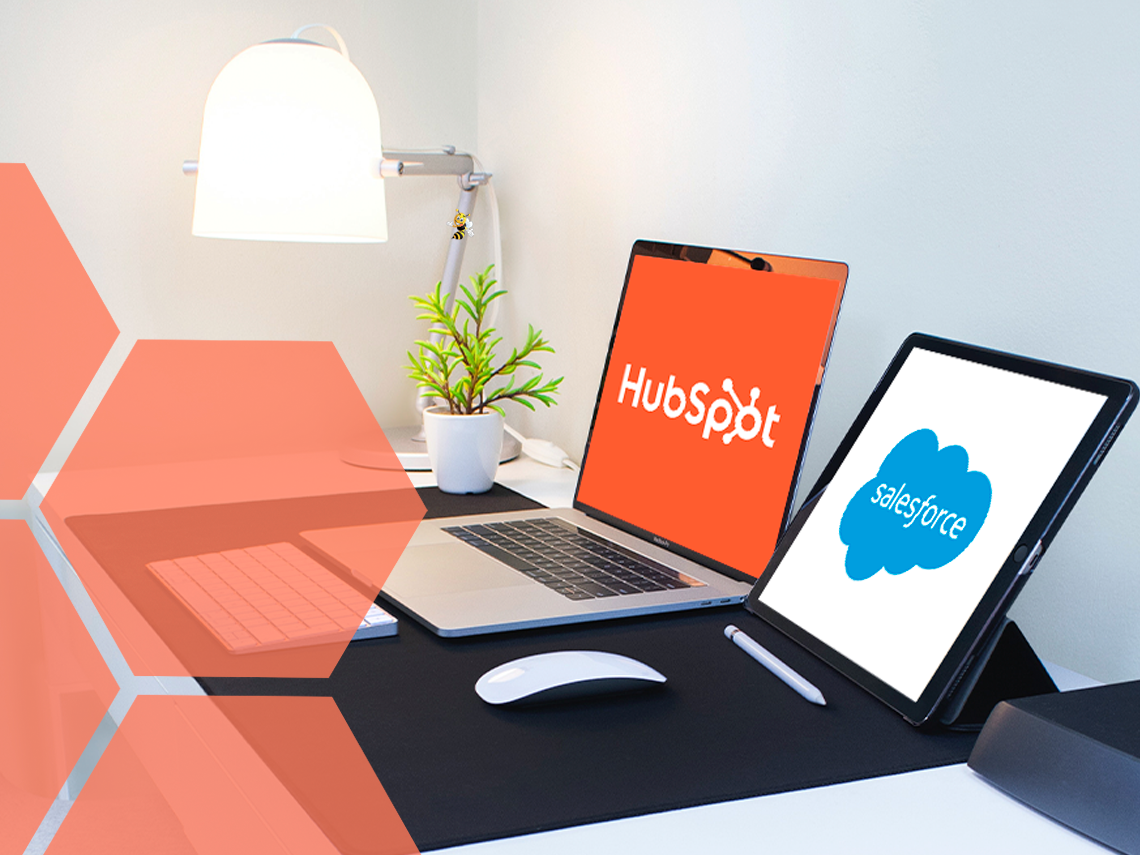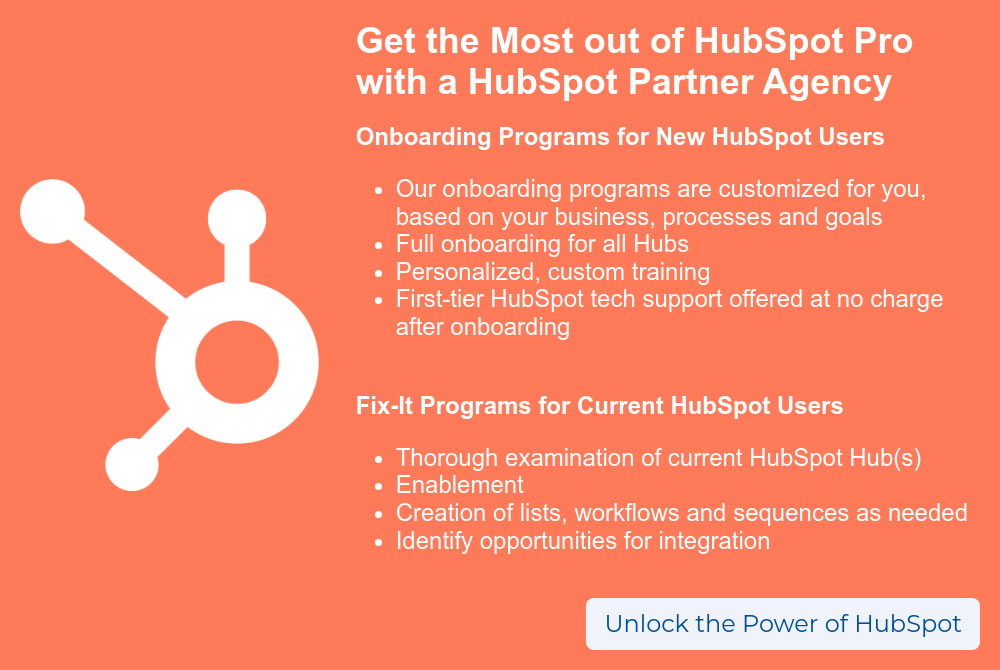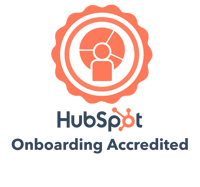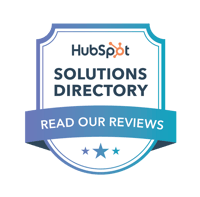HubSpot and Salesforce are two of the most popular CRM and sales tools available. When you're deciding on a CRM, you're likely going to look at both. It can be a challenge to determine which one is better for your needs since, at least on paper, they seem to offer many of the same tools.
Features included in both HubSpot and Salesforce
| Contact & Account Management | Opportunity & Pipeline Mgmt. | Task / Activity Management |
| Territory & Quota Management | Product & Price List Management | Quote & Order Management |
| Forecasting | Interactive Dashboards | Campaign Management |
| Lead Management | Call Recording | Email Marketing |
Since both HubSpot and Salesforce offer so many similar options, you'll need to look deeper to determine which one is right for you. Hopefully, this blog can help you do that.
Because "better" is so subjective, let's break it down into the core questions you should ask yourself when comparing tools. We'll include a thorough, nerdy chart comparing everything at the end of this article. But first - let's go through the key concerns.
Quick disclaimer: BizzyWeb is a HubSpot Platinum Partner, but we aren't obligated to promote HubSpot over Salesforce. We have several clients that use Salesforce instead of (or alongside) HubSpot with great results. Both tools have strong points, and knowing some cautions can help you make the right choice. So let's dig in.

When Comparing HubSpot vs. Salesforce, Ask Yourself...
What do you want to do with it?
Both HubSpot and Salesforce share several of the same core functionalities, including contact management, dashboard reporting and outbound calling. Where the key difference comes in is other marketing, web development and sales tools you may also need to use. Both tools give you add-on options - but in different ways and at different price points.
HubSpot is structured with a series of hubs that all focus on a specific area of business - like sales, marketing or customer service - centered around a core technology. You have one place to log in, and everything flows seamlessly across all hubs. HubSpot was built from the ground up with this "all-inclusive" structure in mind.
Salesforce offers similar tools, but its structure comes from acquisition vs intentional design. This means that when you execute various activities outside of core sales tasks (like sending a marketing email blast), it's done through another tool that's owned by Salesforce, but not quite seamless in function or design. This adds an extra level of separation - which can often lead to friction, frustration or duplicative work within your team.
When comparing the two, ask yourself what do I want to do with this? Do I only want to store contacts and execute sales tasks, or is my company also going to need marketing, social media management, payment processing, customer service tickets and/or website maintenance? Any growing business needs all of those tools, so you need to decide how separate you want them to be.
→ Related Content: The Hidden Costs of FrankenMarketing
How many people need to use it?
Another question to ask is about adoption - which is particularly relevant if you anticipate anyone beyond the sales team needing to access the CRM.
HubSpot has an unlimited-seat model for non-sales users, meaning you only pay for licenses for users who need total and complete use of the sales tools. Anyone else on your team that might need visibility and limited use - like marketing, management, reporting or operations - can login to review customer data without additional cost. The benefit here is that anyone who needs it can still access the CRM for vital data and reporting without paying extra.
Salesforce has a more typical SaaS model of a per-seat charge. If you need to add a user, you will pay for them. This means that if you wanted to give your marketing director visibility on conversions, you'll need another full-price seat.
Numbers are important here, so when comparing the CRMs you should write down two key numbers: how many seats you'll need for your sales team, and how many seats you want for other team members. Having those numbers ready will help you compare budgets.
Is ease of use or customization more important?
Another big difference between HubSpot and Salesforce is how easy it is to get the tools to do what you want.
HubSpot allows you to customize extensively to meet your business needs. However, you are limited to what you can do within the tool's options. That being said, for most businesses, HubSpot's customization options offered are more than enough. Things like defining your personas, setting up custom contact properties, creating custom dashboards, mapping out your sales cycle, and other basic tasks. The advantage here is that these features are designed to be able to be used by anyone, and so the tool "holds your hand" a bit more. There is in-depth (and free) training through HubSpot academy to get your team up to speed quickly.
Salesforce does offer more customization options vs. HubSpot. This is most true in forecasting and reporting dashboards, where you can create anything you want regardless of what the tool offers. The tradeoff is the expertise you'll need to customize the tool to fit your needs - you're going to need a developer to execute most high-level customizations, and they will need specialized training in Salesforce to ensure the best results and experience. For most businesses, the reporting options available by default in HubSpot will answer your reporting needs. Another benefit of near-endless customization opportunities is that you can integrate Salesforce with almost any other tool on the market. In fairness, HubSpot can also integrate with thousands of tools, so do your homework before making a costly decision
In order to get the most out Salesforce, you need at least one dedicated staff member to integrate, administer and get the most from the system, if not a whole team (in addition to your sales team of course). For some very large organizations, it's necessary, and worth the ability to endlessly customize the tool for complex business needs. Most small, medium and large organizations are better off using a tool that most employees can adopt and understand after a simple training.
→ Related Content: Top 5 Benefits of HubSpot Sales Pro
The Comparison Chart
Above are the key questions you need to ask yourself when comparing the tools, but it's also helpful to see everything listed out side-by-side. This chart compares the features and costs associated with each tool, for easy reference.
| HubSpot | Salesforce | |
| Ease of use | Ranked easier to use by most users (sources: PCMag and G2) | More customization, but harder to use |
| Support | Phone and email support included for all Professional and Enterprise plans | 20% of net cost for phone support and 24/7 coverage 30% of net cost for additional feature access (Add 5% for U.S.-based support) |
| Apps and Integrations | 500+ apps and integrations through App Marketplace | 3,400+ apps and integrations through AppExchange |
| Costs |
Free HubSpot CRM - $0
Sales Hub Starter - $50.00 for 2 Users Per Month
Sales Hub Professional - $500.00 for 5 Users Per Month
Sales Hub Enterprise - $1,200.00 for 10 Users Per Month
|
Sales Essentials Edition - $25.00
Professional Edition- $75/user/month
Enterprise Edition - $150/user/month
Unlimited Edition - $300/user/month
|
When comparing HubSpot and Salesforce, it's important to consider how you want to use the system, how many people need to access it and how fast you want to be able to adopt it and get started.
The tl;dr version:
- HubSpot is the better option for businesses looking for an easy-to-use, robust CRM with integrated marketing, customer service and website capabilities.
- Salesforce is the better option for very large companies who want to invest in a custom, in-depth solution at a higher budget per user.
Get the Most out of HubSpot Pro with a HubSpot Partner Agency
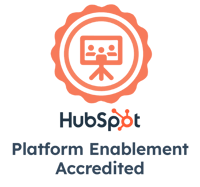 BizzyWeb is a HubSpot Platinum Partner: we offer full-service HubSpot onboarding, enablement and strategy for all hubs. Our team has over 196 certifications in HubSpot (and constantly growing). No matter what your HubSpot needs are, our team is ready to handle them.
BizzyWeb is a HubSpot Platinum Partner: we offer full-service HubSpot onboarding, enablement and strategy for all hubs. Our team has over 196 certifications in HubSpot (and constantly growing). No matter what your HubSpot needs are, our team is ready to handle them.
Plus, we are the only agency in Minnesota with a Platform Enablement Accreditation from HubSpot - sounds fancy, but it means we're top-notch in making HubSpot work within your business.
BizzyWeb is a Minneapolis-based digital marketing and web design agency that helps companies get the high-quality leads they need to grow and thrive. Our tactics include inbound marketing, SEO, advertising, web design, content creation and sales automation. We are an accredited HubSpot Platinum Partner and we offer full-service HubSpot onboarding, enablement and strategy for new and current users.
References:
G2: Compare HubSpot Sales Hub and Salesforce Sales Cloud
US News: HubSpot vs. Salesforce CRM
CRM.Org: HubSpot vs Salesforce Comparison 2022: Which Is Best?
